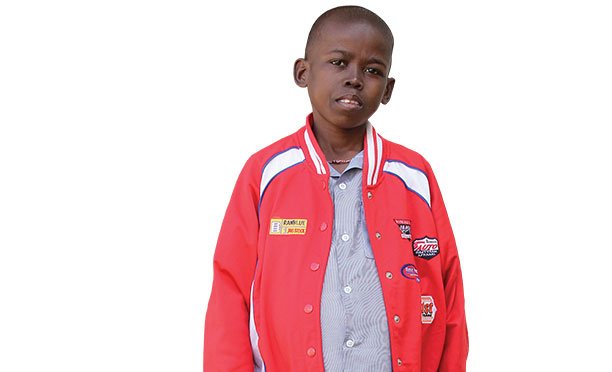Gaucher Disease patient lives positively
With his high-spirited smile and infectious laughter, it is hard for one to wrap their mind around the fact that Loago Bagopi is suffering from a terminal affliction.The 21-year old native of Sefophe is suffering from a painful and rare genetic disease called Gaucher Disease (GD) but he is determined to live the best life he possibly can while he still has it.
GD is a rare inherited disorder caused by the body’s inability to make an enzyme, glucocerebrosidase, which breaks down fatty substances in the body. This leads to build up of these substances in many tissues of the body, including the bones, organs, and bone marrow.
The disease affects vital organs, and symptoms include developmental delay, seizures, dementia, blindness, enlarged liver and spleen, pulmonary and cardiac problems and bones that grow abnormally.
The disease is named after the French physician Philippe Gaucher, who originally described it in 1882.Bagopi’s health problem started when he was six years old and as he grew up and became an adolescent, the disease grew with him.
“I was very thin with a swollen tummy and I had to give up playing one of my favorite sports in the world, football, because my legs hurt.I was always tired and even if I had a small bump I would bleed excessively,” he explains.
The pains were not only in his knees, but also in the femur, hips, and back. His health problems became more frequent and aggressive and also meant he could be in bed for up to two months at a time.
With all that, Bagopi still managed to get a grade B for his junior secondary school leaving examinations, but unfortunately couldn’t go on with school because of his health problems.
It was only when he was 17 that he was finally diagnosed with Gaucher. He is one of the three confirmed cases of GD in the country.
“It was confusing for me that I was constantly going to doctors, constantly getting MRIs, x-rays, density scans,” recalled Bagopi. “I didn’t know what to look forward to”.
Once Bagopi was diagnosed with GD, the family received another shock.
There was nothing that doctors could do for him because the treatment is so expensive. At a cost of about P104 000 every two weeks, this condemns patients with rare diseases like Bagopi to a death sentence, according to Consultant Pediatrician at Princess Marina Hospital, Dr Joel Dipesalema.
“Cost of treatment is high because demand for medicines is low, and companies have to charge higher prices to recover cost,” he explained. Even more frustrating, he said, is the time patients take before they can be diagnosed.
Dr Dipesalema, explains, “A lot of patients are misdiagnosed and they go from one specialty to another, sometimes for years and even decades while they suffer from disabling complications of their disease.
It causes a tremendous sense of isolation and chronic pain, disability and loss of quality of life. So there is a huge burden of suffering that the patients experience on their path to having the correct diagnosis. The worst thing is not to know. Knowing what’s wrong, you have conquered more than half the battle.”
There are no specialized labs essential for diagnosis of most rare diseases in Africa and so all diagnosis are done in Europe. He said Gaucher disease occurs in three different forms, referred to as types 1, 2, and 3. Type 1, which Bagopi suffers from, is the most common form, accounting for 90% of known cases.
A delay in diagnosis or lack of treatment leaves the patient at risk of irreversible damage, which Dr Dipesalema said eventually leads to loss of body function and a painful death.Some of the biggest challenges when living with Gaucher, Bagopi said, include continuous fatigue.
“The pain comes and goes and sometimes makes it impossible to get out of bed, but the fatigue is always there and it is also immobilizing at times. A lot of times I’m just too tired to do anything. There is something about this type of being tired that is painful. It makes life impossible,” he said.
And then there are the constant stares he gets from the public every time he leaves the house because of his big stomach.“At one point I became really shy and didn’t want to mingle with anyone who was not family”. But he is over that now because, “being alive is too precious to waste it on obsessing what people think and say about you!”
With his eyes focused on enjoying his life the best way he can, Bagopi hopes that by sharing his story, other people battling the debilitating illnesses would be inspired to not focus on their negative circumstances and live their best lives.






